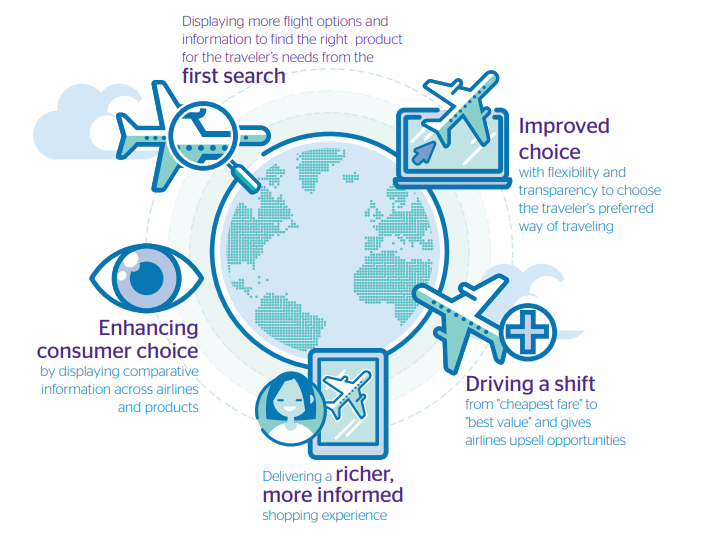Travelport has this week confirmed that it is actively working with multiple airlines and partners to offer Next Generation Storefront (NGS) capability. NGS is an industry initiative to enable travel agencies to display airfares just like airlines show their branded fares on their own websites.
The industry partners that are working with the travel commerce platform to pioneer NGS development are WhereTo, an online booking tool, and Travel Technology & Solutions (TTS), a global player in the development of innovative solutions for the travel and tourism industry.
Developed by industry body ATPCO, it aims to deliver a richer and more informed shopping experience for travellers. The "storefront" allows users to compare and choose between multiple branded fare offers and across different airlines' flights - all on one screen.
Powered by Travelport's latest API, Trip Services, NGS will present airlines' offerings by fare families and their ancillaries for easy comparison shopping. This will allow all of the company's partner travel agencies to display more flight options and information for travellers, so they can choose the offering that works best for their customers.

As the ATPCO standards continue to evolve, Travelport aims to facilitate exact comparisons across airlines' full range of products, whether for online agencies, corporate booking tools or Travelport's own travel agency desktop solution, Smartpoint.
The new displays will show different branded categories such as Basic Economy, Standard Economy and Economy Plus in a single display alongside one another, enabling users to select their preferred branded offer for each leg of their journey, says Travelport.
This means travellers can book a business class ticket one way and an economy class seat for their return, with airport lounge access during a long layover. NGS will ultimately "provide more flexibility, transparency and clarity to the user and let customers compare fare prices across different airlines and choose their preferred way of travelling," according to Travelport.
With the ability to provide more options to travellers, including ancillaries like upgrades, baggage and Wi-Fi access, agencies will be able to more easily support airlines' retail sales while at the same time providing a better shopping experience for travellers.
Travelport had previously begun its journey down this path when it launched Rich Content and Branding in 2014. More than 270 airlines now benefit from this solution which provides travel agencies the brand and ancillary data they need to help travellers make informed decisions other than just the price.
NGS will be key in driving a shift from "cheapest fare" to "best value", explains Travelport's chief commercial officer, Stephen Shurrock. "Displaying multiple options enhances consumer choice and gives airlines upsell opportunities, whilst providing measurable value to all partners."
Put simply, NGS is ultimately a proposed standard to allow for the comparison of branded airfare offers across multiple carriers that aims to deliver a richer and more informed shopping experience for travellers by allowing greater transparency and choice.
Under ATPCO's NGS initiative, carriers work with the air content information and distribution company to gather, normalise and present their products via standards that enable travel agencies, online booking tools, GDSs and aggregators to enhance their retailing displays.
Jeff Lobl, Managing Director Global Distribution Strategy at Delta Air Lines says that GDSs like Travelport "have a critical role to play in the retail transformation of our industry" and he believes NGS is "central to that effort".
There has not really previously been a real retailing standard for what indirect channels display. Now, via the NGS standard, indirect sellers can use airline product data to sort products by rating or into similar groups, or "shelves" for product comparison. A star or other rating system could indicate product quality, much as in the hotel industry, while products can be organised to help shoppers find the right level of service in "drawers".